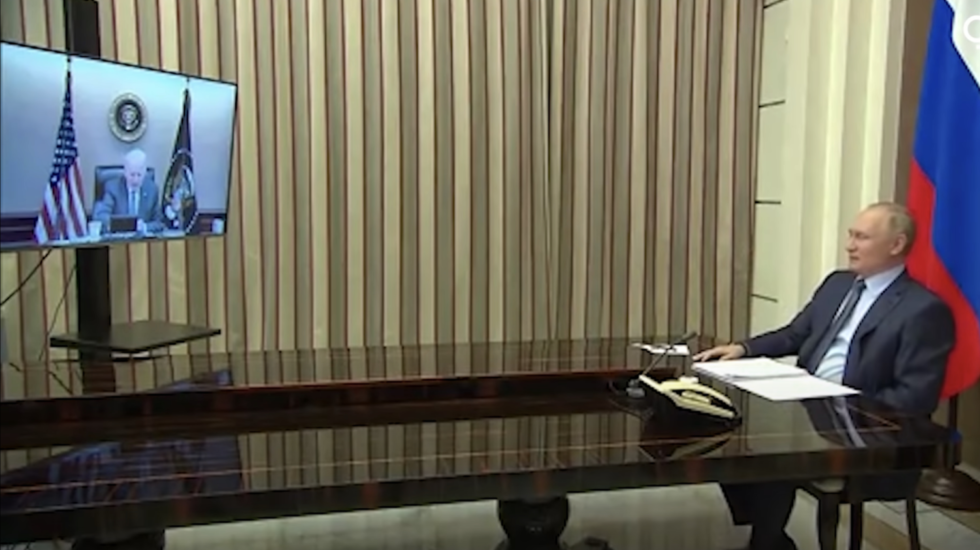President Joe Biden warned Russian President Vladimir Putin on Tuesday morning not to invade Ukraine.
The two world leaders held a two-hour video conference amid a buildup of Russian troops on the Ukrainian border. Recent reports indicate Putin is contemplating a multi-front attack on his Eastern European neighbor which could involve nearly 175,000 Russian troops.
According to a White House readout, “President Biden voiced the deep concerns of the United States and our European Allies about Russia’s escalation of forces surrounding Ukraine and made clear that the U.S. and our Allies would respond with strong economic and other measures in the event of military escalation.”
“President Biden reiterated his support for Ukraine’s sovereignty and territorial integrity,” the readout continued “and called for de-escalation and a return to diplomacy.”
While Biden and Putin spoke, “the Ukrainian military exchanged fire with Russian-backed separatists using machine guns and grenade launchers,” reports The New York Times.
“While the skirmish was not unusual,” notes the Times “it was a reminder that even as leaders in Moscow and Washington were engaging in high-stakes diplomatic negotiations, a war that has claimed thousands of lives over the past seven years showed no signs of abating.”
CNN provides key context:
US officials in recent days have weighed whether to issue wide-reaching sanctions on Russia meant to deter Putin from launching an invasion into Ukraine. They include new actions against members of Putin’s inner circle and on Russian energy producers, and one potential “nuclear option” — disconnecting Russia from the SWIFT international payment system used by banks around the world.
The officials said final decisions hadn’t been made on whether and when to apply the new sanctions, and said the Biden administration is currently in talks with European partners — many of whom have closer economic relationships to Russia — in the hopes of coordinating action.
For its part, “the Kremlin has made clear that it wants the United States to promise not to allow Ukraine to join NATO, as well as guarantees that NATO will not expand east in terms of certain military activities around Ukraine,” reports The Washington Post.
The outlet adds:
Speaking to reporters Monday, White House press secretary Jen Psaki reiterated that Biden’s objective on the call remains the same as it has been since he took office: not to escalate tensions with Russia but “to move to a more stable footing in the relationship.”
According to the White House, Biden and Putin “also discussed the U.S.-Russia dialogue on Strategic Stability, a separate dialogue on ransomware, as well as joint work on regional issues such as Iran,” during Tuesday’s virtual summit.
The Associated Press explains:
In Washington, Republicans are framing this moment as a key test of Biden’s leadership on the global stage. Biden vowed as a candidate to reassert American leadership after President Donald Trump’s emphasis on an “America first” foreign policy. But Biden has faced fierce criticism from Republicans who say that he’s been ineffective in slowing Iran’s march toward becoming a nuclear power and that the Biden administration has done too little to counter autocratic leaders like China’s Xi Jinping, Iran’s Ayatollah Ali Khamenei and Putin.



